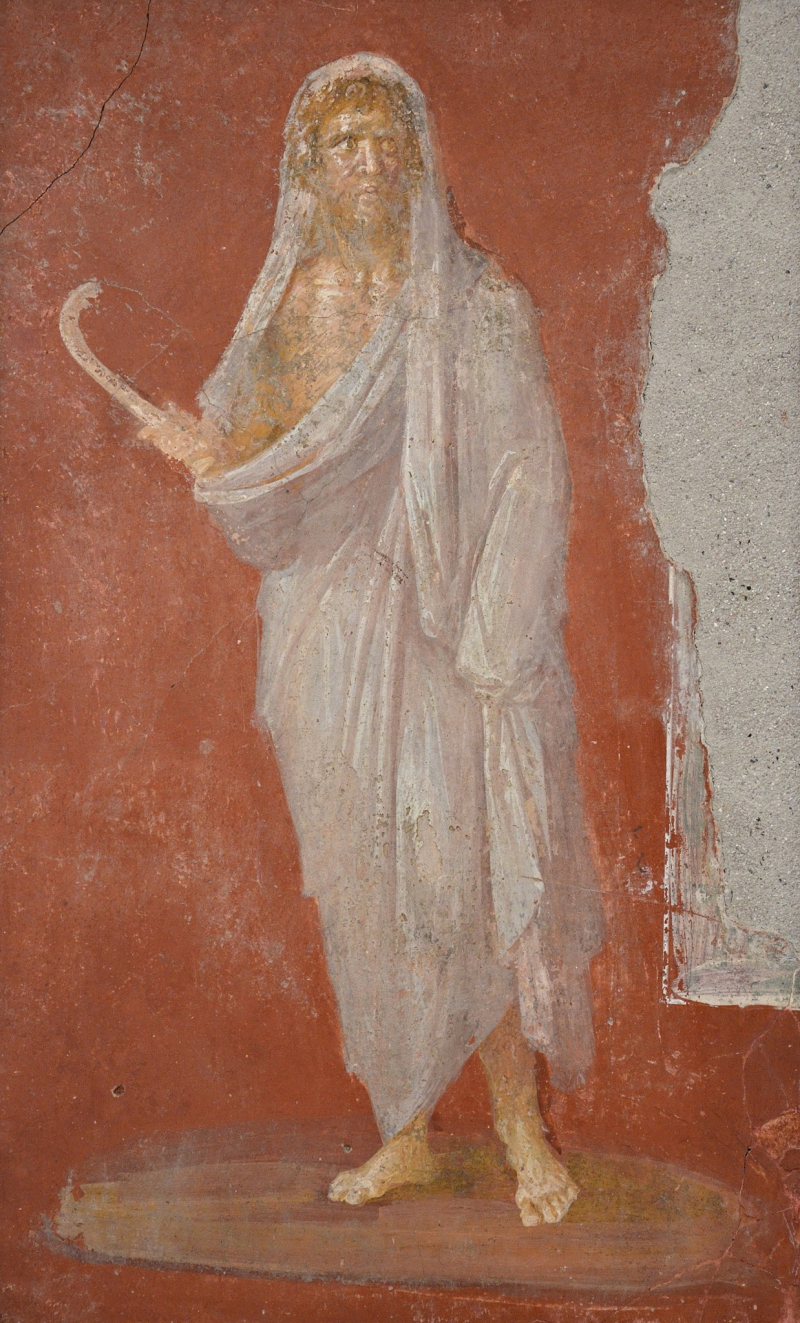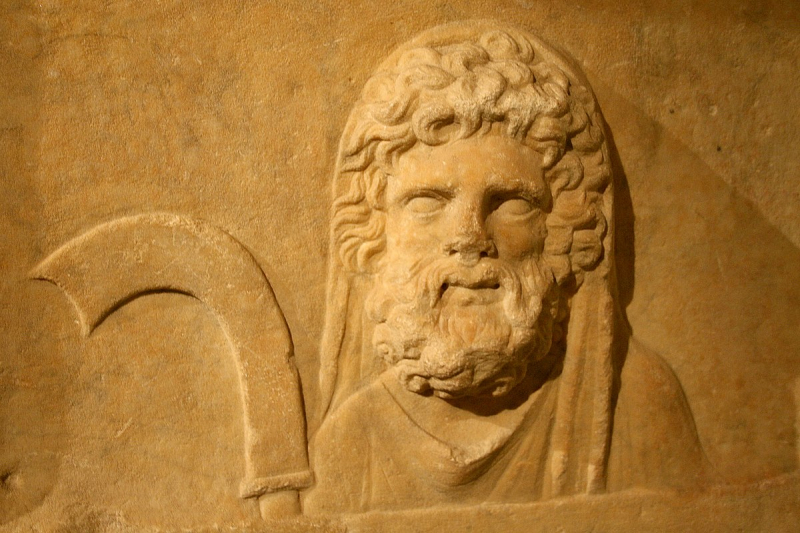Saturn
Saturn was a god and a character in Roman mythology in ancient Rome. He was known as the god of time, generation, dissolution, abundance, wealth, agriculture, periodic rebirth, and liberation. Saturn's legendary reign was portrayed as a Golden Age of prosperity and harmony. He was associated with the Greek Titan Cronus after the Roman conquest of Greece. Saturn's consort was Ops, with whom he had Jupiter, Neptune, Pluto, Juno, Ceres, and Vesta as children.
Saturn was especially honored during Saturnalia, the most famous of Roman festivities, which took place each December and featured feasting, role reversals, free speech, gift-giving, and merriment. The Temple of Saturn in the Roman Forum housed the Roman Republic's and early Roman Empire's governmental treasury and archives. Both the planet Saturn and the day of the week Saturday bear his name and are associated with him.
The Roman country kept a memory of a time when Saturn and Janus reigned on the location of the city before its foundation: the Capitol was known as mons Saturnius. Saturn was associated with the Greek Cronus, whose stories were adapted for Latin literature and Roman art by the Romans. Cronus' function in the Greek gods' genealogy, in particular, was shifted to Saturn. Jupiter was said to as Saturn's son as early as the third century BCE by Andronicus.
Saturn had two mistresses who embodied various elements of the god. Ops, the Roman equivalent of Greek Rhea, implies riches, abundance, and resources. The link with Ops, on the other hand, is considered a later development, as this goddess was initially paired with Consus. Previously, Saturn was associated with Lua ("destruction, dissolution, loosening"), a goddess who received the bloodied swords of defeated opponents. In the "Golden Age" described by Hesiod and Ovid, humans enjoyed the spontaneous bounty of the earth without labor under Saturn's rule. He became renowned as the Time God.












